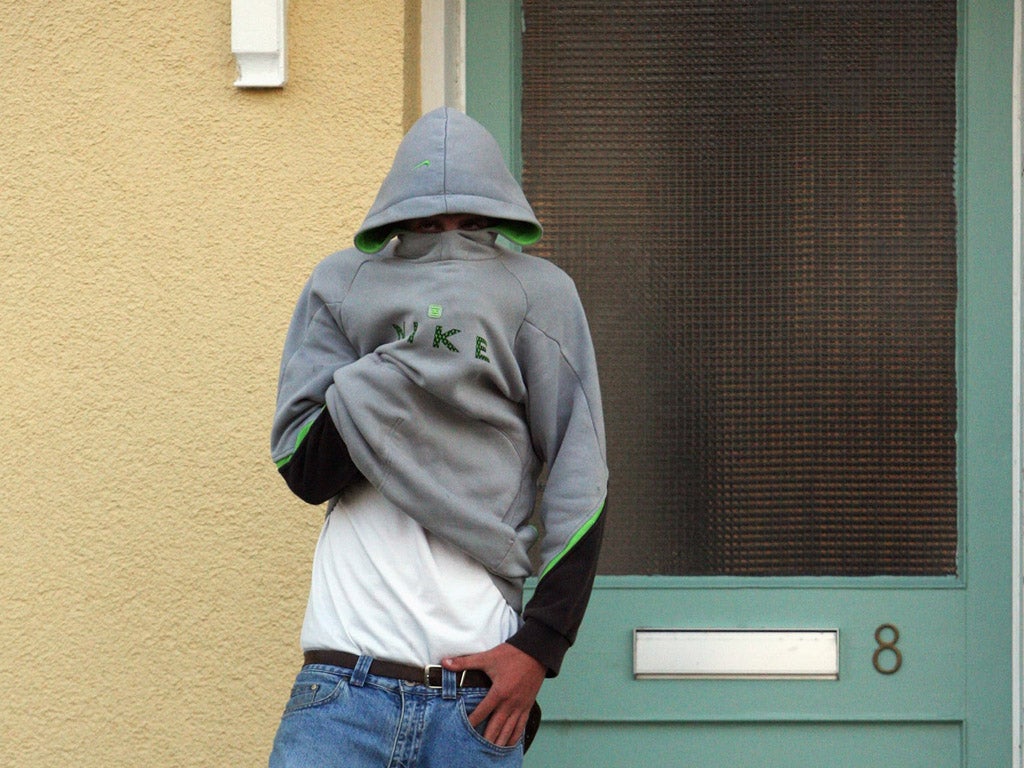What’s behind an alarming rise in physical assaults on parents by their offspring?
These days, it’s tough to find a bastion of authority in which we can be proud

There is a moment when your child becomes simply too big for you to handle. I can still lift my 11-year-old daughter out of bed; I can still restrain my eight-year-old son from getting up during supper. The other two, aged 16 and 14? Forget it. Any notion of parental authority has to be wielded via reason. Indeed, they are easily big enough now to push me around. Not that this has ever happened to me, but in some families, it does.
Oxford University researchers have conducted the first proper study on adolescent on parent violence; it’s out there, and it’s growing. During just one year (2009-10), nearly 2,000 parents, mostly mothers, were attacked by their children, mostly sons, in London alone. The actual figure could be higher; the study suggests that the shame and fear associated with such acts means that many go unreported.
To most of us, the very idea of physically attacking one’s mother or father is anathema, and indeed, the researchers found that the explanation of teenager violence on parents was multifaceted, with a range of reasons including mental health problems and substance abuse. Yet I would suggest that a collapse of social authoritative boundaries is also a contributory factor.
The whole notion of “respect your elders and betters”, under which generation after generation was brought up, and which was probably first seriously challenged in the 1960s, has now been wholly replaced by a notion that respect must be earned, not achieved by the phenomenon of having a few wrinkles, or a uniform.
This is of course not a wholly disastrous thing, and might in part be due to the behaviour of the older generations themselves. These days, its tough to find a bastion of authority in which we can be proud. Teachers have been revealed as cavalier, doctors greedy, nurses cruel, care workers savage, policemen untrustworthy.
Meanwhile, as far as parents are concerned, the entire nation has repeatedly recoiled in horror as every week, it seems, we are presented with the pathetic faces of vulnerable children, betrayed by the very people who are supposed to protect and love them. The whole notion of parenting has been questioned, brought to the dock and many times found guilty. Who could possibly respect the likes of Mick and Mairead Philpott, who together burned their six children to death, or Magdalena Luczak, who starved and murdered her small son Daniel?
But beyond these horrors, I think there is another thing going on. It is becoming hard for teenagers, even friendly and charming ones, to treat parents as figures of respect and authority because their parents themselves are so unwilling to grow up. Teenagers are now quite used to seeing their parents behaving in a way which would have been unheard of thirty years ago.
When I was young, parents were not confusing. They were not over here, with the youngsters. They were over there, with the oldies; they were sedate characters who drank sherry, wore ties and listened to classical music. While I reject the idea of bringing up my children in the way my own mother was raised, with a governess and strict delineation of boundaries between her and her parents, I do sometimes feel a notion of rowing back might be in order.
Nowadays, parents, (and I include myself in some of these activities) march about in tiny denim shorts, erase their wrinkles with Botox and shoot around town on racing bikes. Parents have effectively ceased the march of time so brilliantly that it might be a struggle for teenagers to see them in any other way than peers, and be treated as such.
Many parents don’t have what children consider to be proper day jobs, in an office, to go to. With our smartphones and our wi-fi, we are as likely to spend our time hanging out on Facebook in Starbucks as our kids are. When you can swap clothes with your teenage daughter, it might be difficult for her to see you as anything other than another adult person sharing the same house. With a wallet, admittedly, and access to a car, but that’s about the only difference. And when we get them to show us how to use Twitter, chat to them about money problems or even (heaven help us) our sex lives, we, in effect, cast them as mates, not children. The sight of the Duchess of York going out on the town with her daughters a couple of years ago was simply the sign of things to come.
This is not, of course, to say that the child with whom you are swapping your Topshop jumper might suddenly opt to push you down the stairs in a fit of pique, but it is very difficult to expect them to abide by what you say, when you say “Because I am your mother’” if you have just been giggling together over something on Instagram.
Twitter: @RosieMillard

Join our commenting forum
Join thought-provoking conversations, follow other Independent readers and see their replies